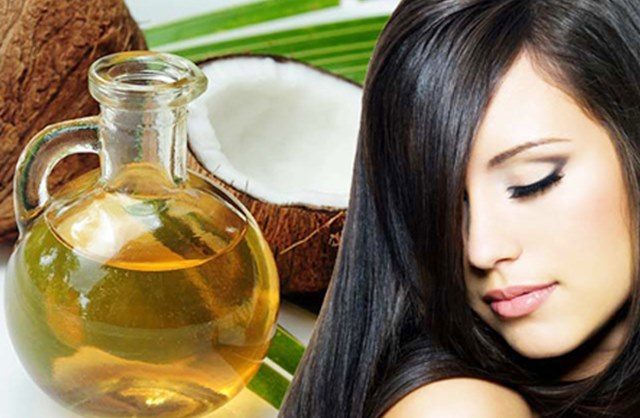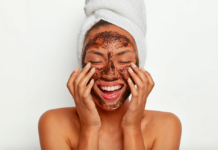If you are experiencing problems with your hair (whether it is dandruff or hair fall) and nothing worked to fix it, then you might need to try applying oil to hair. You don’t have to be experiencing hair problems to be using hair oiling but can simply use it for shiny, healthy hair.
What is hair oiling?
Hair oiling is an ancient Ayurveda practice that involves pouring oil directly onto your hair and massaging it in. This method has been used in Ayurveda for centuries with the goal of boosting moisture, luster, shine, and overall hair health. Hair oil is supposed to nourish hair with vitamins and minerals and it therefore even help prevent hair loss. Different with deep conditioning where you apply the product and leave it on for maximum 30 minutes, hair oiling technique allows you to put in on overnight and you’ll apply oil once or twice a week.
3 benefits of hair oiling
- Vibrant hair
Ask any hair professional. The secret to healthy, luscious and vibrant hair is hydration. Different types of oils give different effects, but overall oil can make hair moist, strong and healthy. A hair research in 2015 has proven that oils help prevent hygral fatigue (repeated swelling and drying that can damage hair). What hair oiling does is it protects your hair follicles from damage by filling in the spaces between cuticle cells.
- Improves scalp health
Having vibrant hair usually means your hair is healthy. And healthy hair typically indicates a healthy scalp. But the reality is not always the case. Artificial hair products (like silicone) make hair appear healthy even at the price of product buildup. Else, it may be that other problems are keeping your scalp from being at its best condition.
Coconut oil can be the solution to this problem, as it may enrich the scalp microbiome. This is because it delivers essential vitamins and amino acids your head needs to grow healthy hair. This may also prevent dandruff.
- Might promote hair growth
Rosemary oil, peppermint oil and red ginseng oil have been proven by studies to support hair growth and combat hair loss. Another research from 2016 and 2019 have also proven that scalp massage can result in increased hair thickness. Pantene commercial, here you come.
How to practice hair oiling
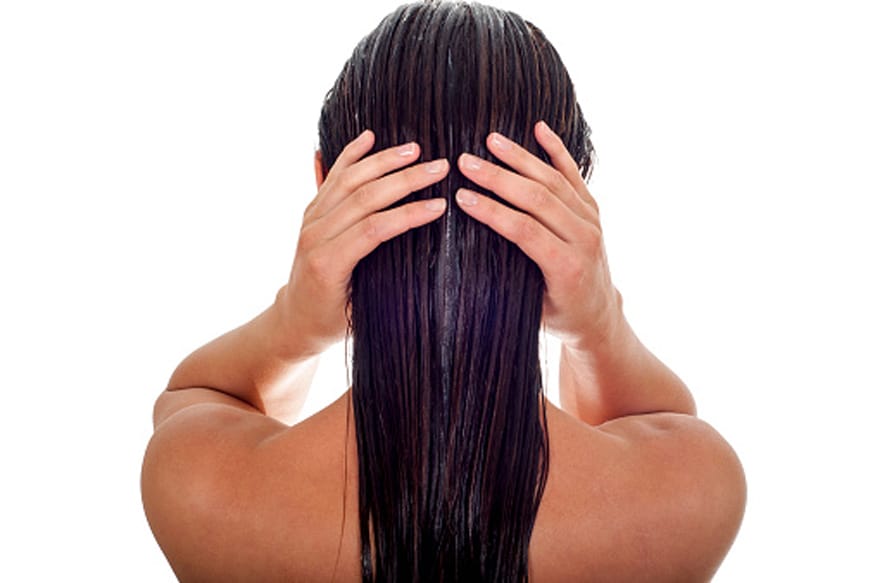
Massaging oil into your scalp will boost blood flow and just might come with a host of other benefits.
Here’s how to do it:
- Apply anywhere from 1 teaspoon to 1 tablespoon of oil (enough to coat your hair) to your scalp and massage with your fingertips in a circular motion.
- Your palms should be really oily at this point. Take all the excess oil and rub it down the rest of your strands.
- Wrap up your hair with a towel or shower cap. Leave it on overnight.
- The next day, shampoo your hair while it’s still dry. (This should help remove the oil.) Then rinse like you mean it.
- Condition as usual.
How often should you oil your hair?
Hair oiling is done once or twice a week for most, but that does not work that way for everyone. It is a process of trial and error, but find what works best for you. We don’t recommend oiling your hair on a daily basis though, as it could end up a little greasy or even too dry.
How to choose the right hair oil for you
Choosing the hair oil of your choice is up to your hair’s preference. Maybe coconut oil is the ideal, maybe it’s sesame oil, or perhaps is a mix of both. Whatever it is, don’t forget to do a quick patch test to make sure you don’t have an allergy to the oils you are trying on.
Coconut oil
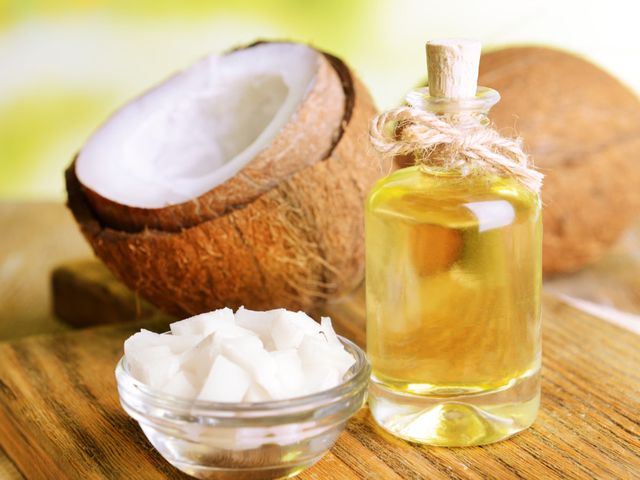
In the world of beauty and skincare, coconut oil reigns as the super ingredients to solve all your beauty woes. From dark circles to cellulite, coconut oil can do all, including being a key player in the hair care game. People in India and across South Asia use coconut oil for their hair while it is the most commonly used hair oils used. This is because it contains lauric acid, a fatty acid that bonds easily to hair protein. It’s also for that reason that coconut oil has the ability to penetrate into the strand’s shaft and repair damage. Other than that, a 2014 study states that it may help relieve symptoms of atopic dermatitis (aka eczema) in children when applied to the skin, including the scalp. This, coupled with its ability to control the damage makes it the solid choice for all hair types.
Sesame oil
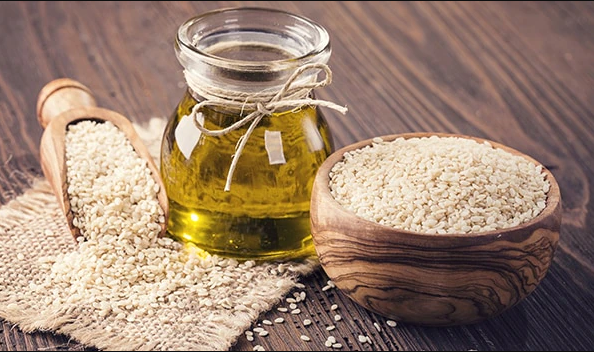
If you suffer from hair that is prone dryness, fizziness, flakiness, dandruff or breakage, then sesame oil may be the oil for you. It contains lots of vitamin B1, calcium, phosphorus, copper, iron, magnesium, and zinc, which are nutrients that may help replenish your scalp. Moreover, sesame oil also has antibacterial and antifungal properties that can help anyone suffering from dandruff.
Almond oil
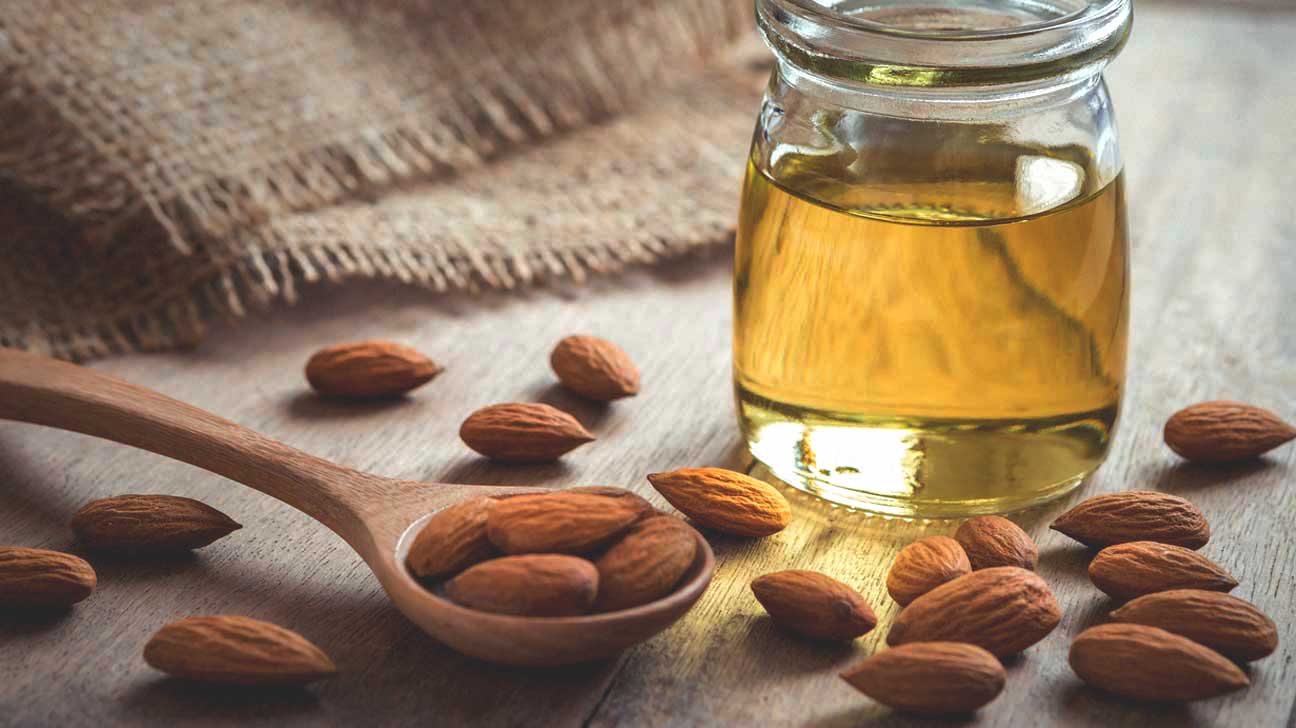
Those with oily hair should choose lighter oils other than sesame or coconut oil. The choice should fall on almond oil, mainly because it also contains vitamins B, K, and E. A 2010 research suggests that vitamin E reduces oxidative stress on your hair and promotes hair growth. Biotin (one of the B vitamins) is another key hair care supplement. Another 2017 review reveals that it may boost hair health and growth, but studies on topical use itself are pretty limited.
Red ginseng oil
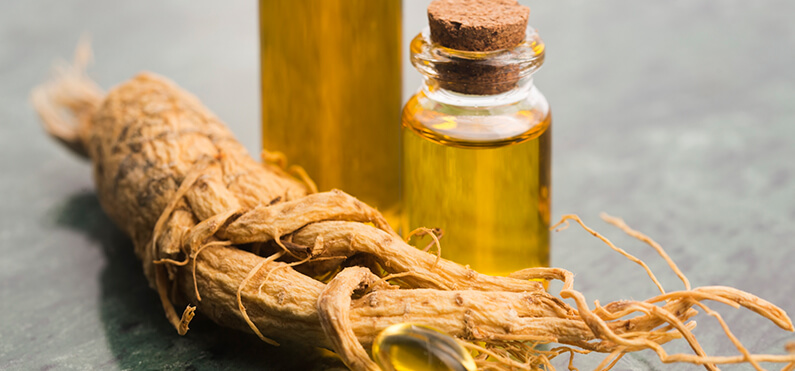
Another great oil alternative for your hair problems is red ginseng oil. A study in 2021 concluded that red ginseng oil promotes hair growth. Scientists believe the oil can stimulate early hair follicle progression to promote growth. Not only that, it also has a lot of vitamins and minerals that could benefit hair like B1, B2, B12, and C. Studies have even shown that it can also benefit hair whether as a supplement or an extract. If you’re experiencing hair thinning or hair loss, this might be a good addition to your mix.
Rosemary oil
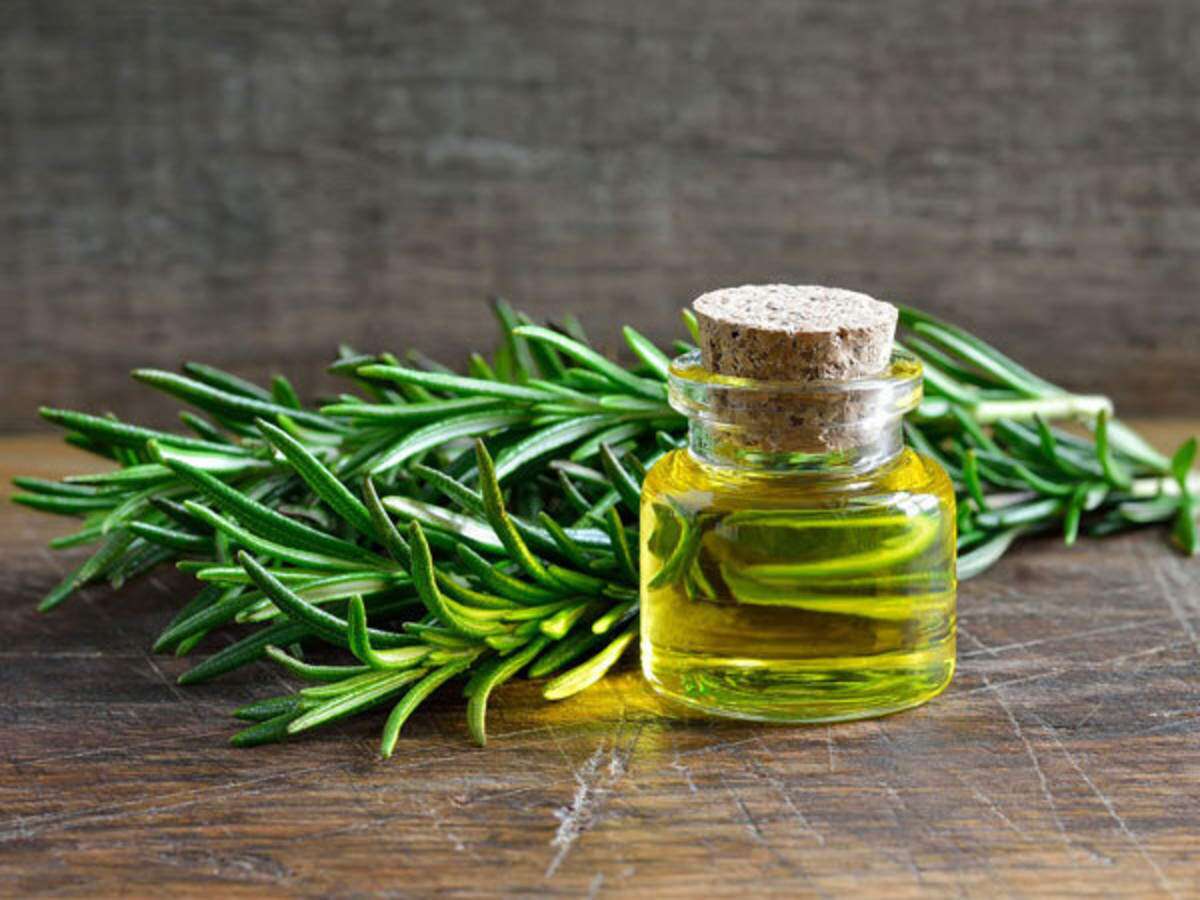
Time and time again, research has proven that rosemary oil is effective in hair growth. In 2015, researchers compared rosemary oil to minoxidil (a common over-the-counter hair regrowth treatment) and found that both treatments were successful in regrowing hair to participants within 6 months. In 2013, a study conducted on mice with testosterone-related hair loss (rodents experiencing what is also known as ‘male-pattern baldness’) were also treated with rosemary which proved to be able to regrow the hair. In another 2017 study, rosemary oil has been proven to kill fungi and bacteria that can lead to an otherwise unhealthy scalp. So if you’ve experienced hair loss, rosemary oil is definitely worth the try.
Peppermint oil
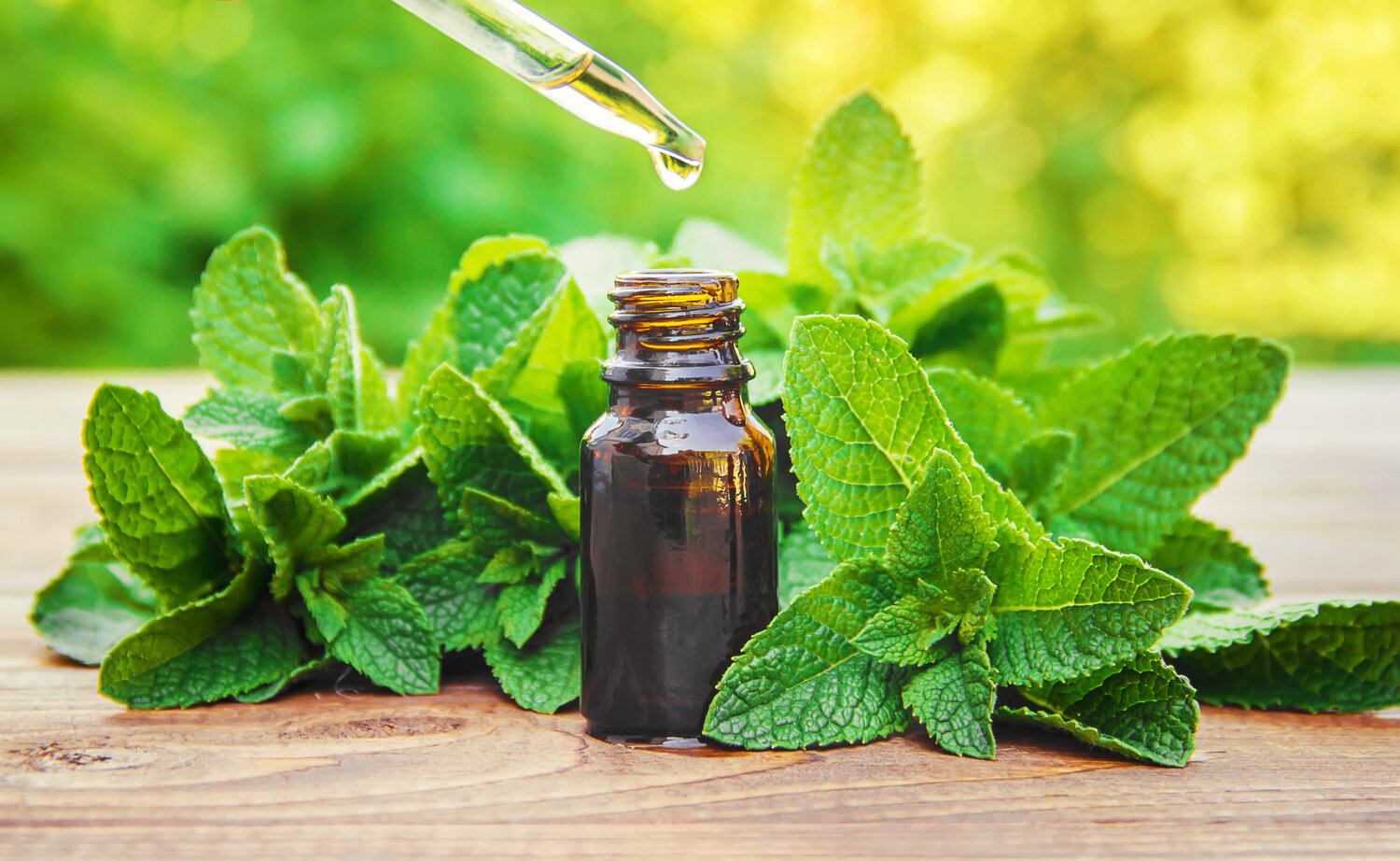
And lastly, peppermint oil is also another oil you can try for promoting hair growth. Since peppermint also has a tell-tale smell, your hair will look and smell fresh as well. In a 2014 study, peppermint oil managed to outperformed saline, jojoba oil, and minoxidil in making hair thick and full of density over 4 weeks. The reason may be because peppermint is a vasodilator (that means it opens blood vessels) which in turn, could stimulate new follicle growth. Peppermint oil is good for all hair types but may be especially beneficial for folks who experience excessive hair shedding or hair loss.
Hair oiling alternatives
Not keen on oiling every week? Then you can still have healthy hair by doing these tips instead:
Hair masks. You can find a hair mask or deep conditioning treatment at any beauty supply store. Most brands recommend leaving them on for 20 to 30 mins, but be sure to read the instructions on the product.
Conditioning with oil. If you’re not up for leaving the oil on overnight, consider adding a little coconut oil (or your fave oil) to your conditioner a few times a week.
The no-poo method. The no-poo method involves skipping shampoo to retain hair health and add moisture. Try it before you poo-poo it!
Salon treatment. A salon-grade scalp treatment or deep conditioning treatment can help nourish your hair without all the at-home work.
Rice water. Though the research on this is limited, adding a little rice water to your shampoo and conditioner routine might help strengthen your locks.
Scalp massages. Scalp massages may help promote hair health and growth. Whether you go to a pro or try it yourself, why not get the blood flowing?
Have you ever tried hair oiling? Tell us your experience in the comments section below!

